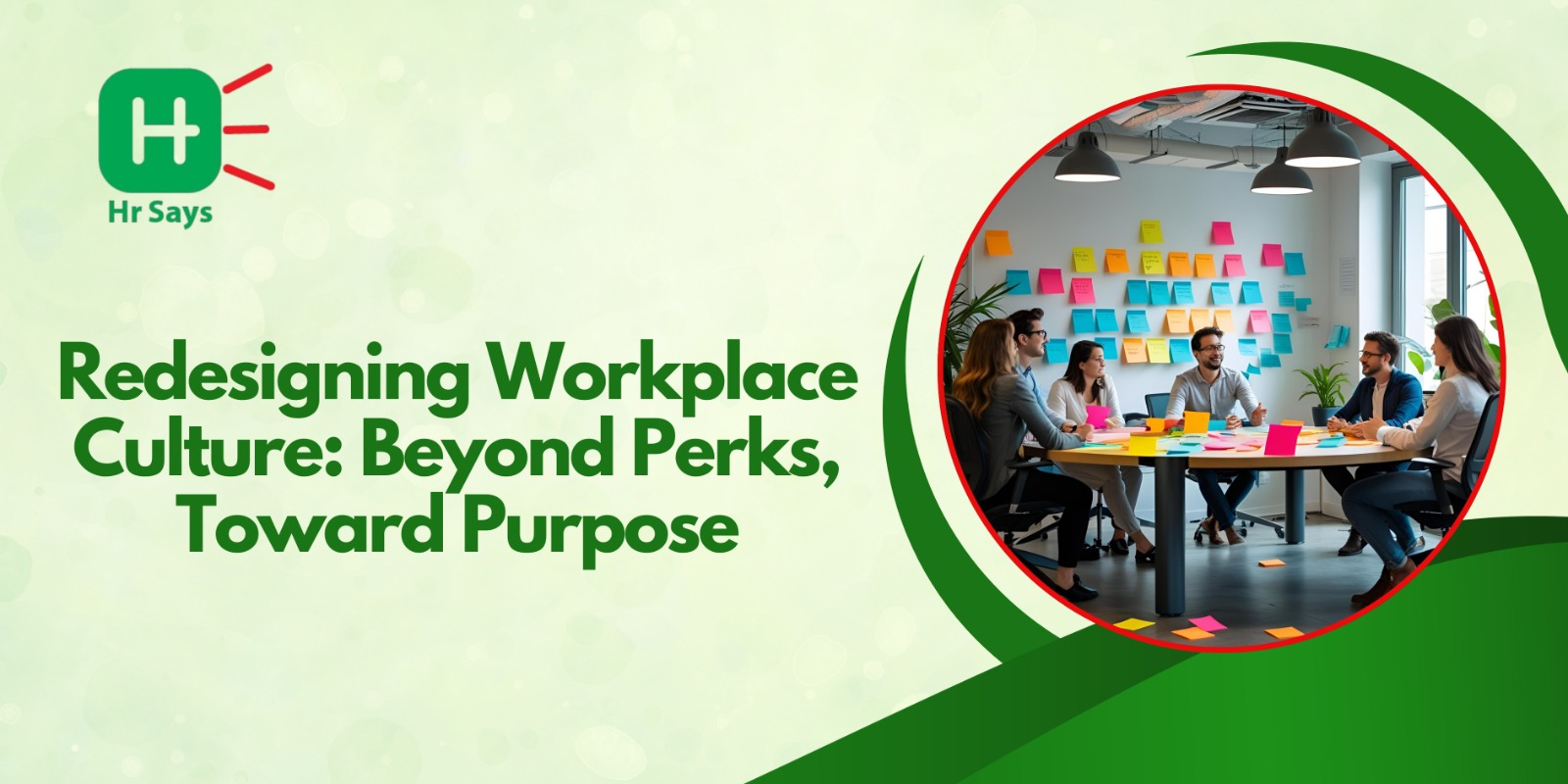Ping-pong tables, free snacks, and Friday beer taps once defined "great" company culture. Not anymore. The new gen of employees, in 2025, want meaning, not just material perks. Workplace culture is hitting a very crucial transformation—not just from surface-level, but it is starting to benefit and penetrate into something deeper, purpose-driven.
Perks Aren’t Culture—Purpose Is
● Perks are just short-term motivators, but they don’t create loyalty or meaning. Perks such as free snacks, a casual dress code, game rooms or app pods do not motivate employees that much, but a meaningful purpose like improving people’s lives can.
● Employees, especially Gen Z and Millennials, want to know their work matters. Working like a robot in a chair and attendance are important, but nowadays, feedback on one’s work is much more important.
● A Deloitte study (2024) shows 73% of young professionals prefer purpose-driven companies—even over higher salaries. Purpose doesn’t mean saving the world. It means clear values, social responsibility, and a mission employees can align with.
Culture Is Built Through Behaviour, Not Bonuses
● The framework of real culture, it shows up in how leaders communicate, how teams collaborate, and how failure is handled, this has shown better performance in employees.
● Workplaces that value the transparency, respect, and autonomy between their employees and organisation outperform those that offer unlimited vacation but lack trust.
● Companies with strong cultures see 3x faster growth than their peers. This is according to McKinsey (2023).
● It’s more about how people feel at work, not what they’re given. If an employee feels the workplace as their second home, the chances are that he/she would get more productive.
Listening Over Lecturing: Building Two-Way Culture
● Purposeful cultures listen first. Town halls and surveys are not enough.
● The leaders should act on employee feedback and the employees should be visible in
their values.
● In the EU, startups are using a collaborative culture. It is helping them use mapping tools
to let teams co-create values, not just receive them top-down.
● There are some companies that desperately try to impose their culture on their
employees. Let me tell you, culture can’t be imposed—it must be shared and lived daily.
Case Examples: GCC, US, and Europe
● UAE’s Careem has moved from free lunches to storytelling workshops that tie personal
goals with company mission.
● In the US, Patagonia continues to blend business with environmental activism—and
attracts purpose-driven talent as a result.
● Germany’s SAP focuses on "inclusive purpose," embedding DEI and sustainability goals
into daily operations, not just PR.
It’s Up to YOU: The Ultimatum
Perks are easy and honestly, it’s nothing but a shiny wrapper. Purpose takes effort and intention.
Efforts from every side of the structure of the company. Companies that want lasting loyalty,
innovation, and performance must build cultures that matter. Not with gimmicks—but with
values, trust, and real meaning.

 As workplace culture is turning into something meaningful and purposeful, we are starting to
see the massive changes in employees as well as in the businesses. Work culture now is not
merely about going in and out, it has been more about innovation, ideas, and loyalty now.
As workplace culture is turning into something meaningful and purposeful, we are starting to
see the massive changes in employees as well as in the businesses. Work culture now is not
merely about going in and out, it has been more about innovation, ideas, and loyalty now.








.jpeg)
.jpeg)

.jpeg)





.jpeg)



.jpeg)

.jpeg)



